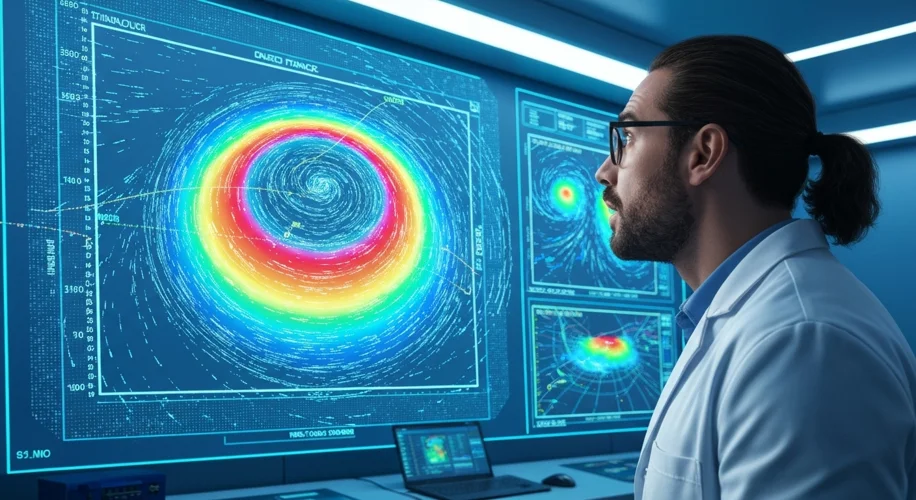It’s quite something to think about how much our lives are shaped by the weather. From planning a picnic to managing vast agricultural operations, accurate forecasts are fundamental. For decades, we’ve relied on increasingly sophisticated models, but there’s always been a limit, especially when looking further out than a week or two.
Now, DeepMind, Google’s AI research lab, is making waves in weather forecasting. They’ve developed an AI system, called GraphCast, that has shown remarkable results. Unlike traditional methods that can take hours to process complex atmospheric data, GraphCast can generate a 10-day forecast in under a minute, using significantly less computing power. This isn’t just about speed; it’s about accuracy. Early tests suggest GraphCast is more accurate than existing state-of-the-art systems for a wide range of weather phenomena, including temperature, wind speed, and precipitation.
But the real excitement lies in the potential for long-term forecasting. While today’s standard is still largely focused on the short-to-medium term, DeepMind’s work hints at a future where we could achieve highly accurate forecasts up to a month in advance. Imagine the implications.
For agriculture, a reliable one-month forecast could revolutionize crop planning, irrigation, and harvesting. Farmers could make more informed decisions about planting times, water usage, and pest control, potentially leading to higher yields and reduced waste. This could have a significant impact on global food security.
Industries that depend heavily on weather, like energy, transportation, and construction, would also benefit immensely. Power grids could better anticipate demand for heating or cooling. Airlines and shipping companies could plan routes with greater certainty, avoiding costly delays due to adverse weather. Construction projects could be scheduled more efficiently, minimizing disruptions.
Beyond industry, think about our daily lives. Planning events, vacations, or even just daily commutes could become far more predictable. For emergency services and disaster preparedness, having a clearer picture of potential extreme weather events a month out could be invaluable, allowing for earlier warnings and more effective resource allocation.
This advancement also pushes the boundaries of our scientific understanding. Highly accurate long-term forecasts could provide new insights into atmospheric dynamics and climate patterns. It’s a feedback loop: better data leads to better models, which in turn deepen our knowledge. It’s a fascinating prospect to see how AI can help us interpret the complex systems that govern our planet.
Of course, as with any powerful new technology, we must consider the implications thoughtfully. Ensuring equitable access to these advanced forecasts and understanding how they are used will be crucial. But the potential for DeepMind’s AI to transform our ability to predict and prepare for the weather is truly significant. It’s a clear example of how AI can tackle complex, real-world challenges and offer tangible benefits to society.

